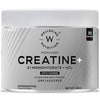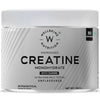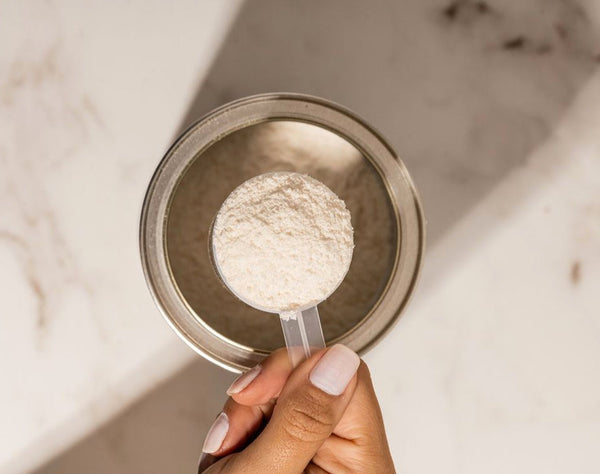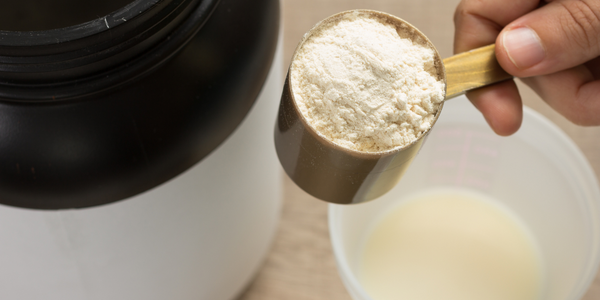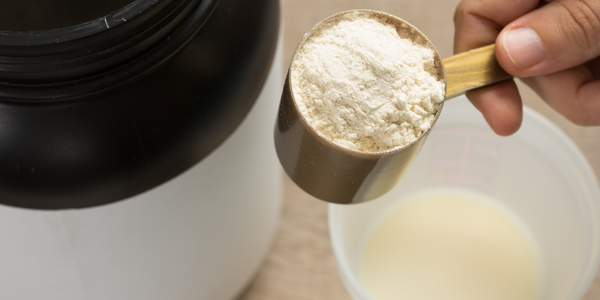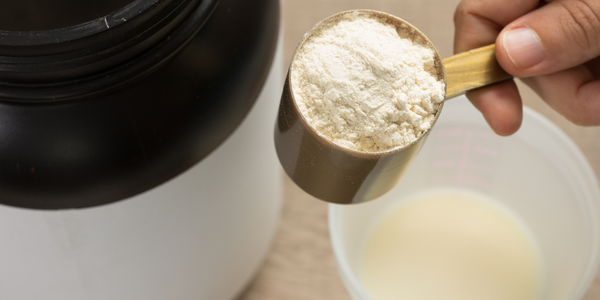Creatine is one of the most researched and trusted supplements among athletes and fitness enthusiasts, known for its ability to boost strength, speed, and muscle mass. But there’s one common concern—weight gain. Before you panic, let’s clear the air. The weight gain associated with creatine isn’t necessarily bad, nor is it the kind you might expect. So, what’s really happening in your body when you take creatine? In this article, we’ll break down the facts, debunk the myths, and answer all your questions about creatine-related weight gain. Let’s dive in!
Creatine & How Does It Work?
Creatine is a naturally occurring compound found in muscle cells that plays a crucial role in energy production, especially during intense workouts or heavy lifting. Like amino acids, which are essential for protein synthesis, creatine supports muscle performance and growth. Half of the creatine in your body comes from dietary sources like red meat and seafood, while the rest is synthesized in the liver and kidneys using amino acids.
Around 95% of creatine is stored in muscles as phosphocreatine, a vital energy reserve, with the remaining 5% found in the brain and testes. Supplementing creatine elevates phosphocreatine levels, boosting your ability to produce adenosine triphosphate (ATP)—the body’s primary energy source.
Creatine’s impact during high-intensity exercise is significant. By increasing phosphocreatine stores in muscles it helps produce more ATP, fueling heavy lifting and intense workouts. Additionally, it supports muscle growth through several mechanisms, including enhancing workout capacity, improving cell signaling for muscle repair, and increasing anabolic hormones like IGF-1. Creatine also promotes muscle hydration, creating a volumizing effect, and reduces muscle breakdown, aiding in mass gain. Furthermore, it lowers myostatin levels, a protein that inhibits muscle growth, unlocking further potential for muscle development. Beyond physical performance, creatine’s ability to boost phosphocreatine levels in the brain offers potential benefits for brain health and neurological conditions.
Does creatine make you gain weight?
Many people worry that creatine will cause fat gain, often noticing a fuller or more swollen appearance after starting the supplement. While creatine can lead to weight gain, it's not always due to fat. Factors like water retention and increased muscle mass contribute to the scale’s rise. Let’s take a closer look at what creatine actually does to your body.
Water retention
Creatine supplementation can lead to temporary water weight gain, also known as fluid retention. This happens because creatine pulls water into muscle cells, making them appear fuller and more pumped.[NIH] As a result, some individuals may experience slight bloating or puffiness around the arms, legs, or stomach. This effect is most noticeable during the first week of use, where weight gain of 2 to 4.5 pounds is common due to increased water retention. While temporary, this process helps muscles stay hydrated and perform better.
Muscle mass
While creatine may cause temporary water weight gain, research shows it is highly effective for boosting strength and endurance. As you continue using it, you’ll likely notice increased muscle size and overall strength.[NIH] Over time, this added muscle mass contributes to weight gain, but the initial water retention becomes less noticeable. Instead of appearing bloated, your muscles will look more defined and fuller. This makes creatine a powerful supplement for those looking to enhance performance and build lean muscle.
Non-muscle weight gain
Many worry that creatine might cause non-muscle weight gain, basically fat gain, but this isn’t the case. Despite the initial weight increase, creatine itself does not add body fat. Fat gain occurs when you consume more calories than you burn, and a daily scoop of creatine (about 5 grams) contains little to no calories. As long as you maintain an active lifestyle and a balanced diet, creatine won’t contribute to fat gain. Instead, it supports muscle growth, strength, and overall athletic performance.
Bottom line
Creatine is a naturally occurring compound in the body that helps replenish ATP levels, fueling your muscles for better performance. Taking creatine simply accelerates this process, enhancing strength and endurance. One crucial factor to remember—hydration is key, whether you're on creatine or not. Any increase on the scale is due to water retention, which keeps muscles hydrated, aiding recovery, performance, and growth. When people say, “Will creatine make you gain fat?”, the answer is, no, it won't. So, instead of fearing water weight, embrace it! Well-hydrated muscles perform better, recover faster, and appear fuller [NIH] - after all stronger muscle means a stronger you - let creatine do its magic.








